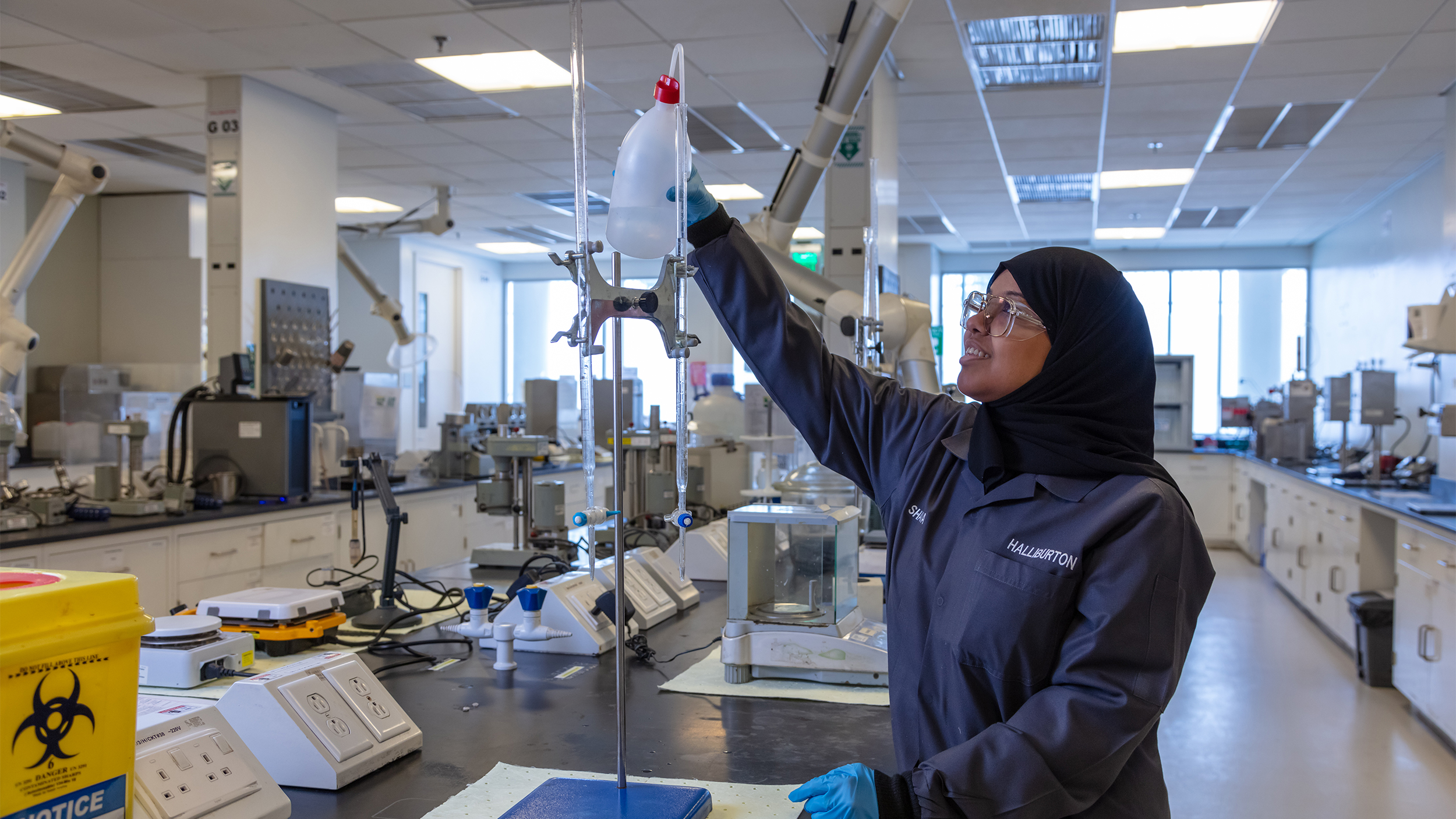 Search
Search
 Search
Search

Work done at Halliburton — which includes our environmental management work — is guided by the policies, business practices, and procedures that are detailed in the Halliburton Management System (HMS). The HMS embeds our environmental risk mitigation into daily work activities, as well as the environmental evaluations within real estate processes and in the due diligence phase of every potential M&A transaction.
Read more on the HSE policy and HMS within the Safety section of this report and on the HMS page of the Halliburton website. Visit the Environment page of our website to learn about our chemical stewardship.
Chapters:
Environmental Management
Identify and execute waste and water management initiatives at locations globally to deliver activity-based reductions.
The HMS applies globally and complies with industrystandard certification programs — including the International Organization for Standardization (ISO) 14001 and API RP 75 — as do all the processes and procedures it contains. In addition to global HMS compliance, many of Halliburton's facilities are externally certified to support business requirements. In 2024, 60 Halliburton facilities held ISO 14001 certifications.
Halliburton recognizes that finding ways to reduce our impact on biodiversity plays a role in sustainability and we include this work in our environmental management system. Our efforts in this area include environmental evaluations to help reduce our impacts on our land; facility designs that meet regulatory requirements and are energy- and water-efficient; promotion of circularity in materials use; targeted water use and waste reduction programs; engagement with local communities to protect and restore sensitive habitats; and cultivation of a responsible supply chain in collaboration with suppliers.
Halliburton respects World Heritage sites and the protections afforded to them.
Halliburton works to conserve water and advance sustainable, cost-effective water management processes for ourselves and our customers where we are able. We offer solutions to optimize water use practices at well sites, where customers own water purchases and control. We report water-use data for Company-owned and Company-leased locations in the U.S., Canada, and most of Halliburton's global facilities.
In 2024, we executed water stewardship projects in 16 locations around the world. Our locations use water consumption data and established water-use reduction toolkits to identify and engage opportunities to reduce their water use. These opportunities include improving efficiencies in auxiliary processes, domestic water use, and / or landscape irrigation.
Our water-use reduction strategies include, but are not limited to, improvements to leak awareness and identification; replacement or enhanced maintenance for older water-consuming appliances and fixtures; adoption of drought-friendly vegetation and xeriscaping; and implementation of systems that recycle and reclaim water.
Halliburton's waste management program employs processes that manage waste from generation to final disposal. These processes include vendor management and the identification, classification, storage, tracking, and minimization of waste. In 2024 we also launched a Waste Management Awareness Training course to help employees who are responsible for waste management understand and comply with Halliburton's waste management standards.
Proper identification and tracking of waste streams enable us to focus our efforts on ways to minimize the volume of waste produced or alternate disposal methods that can reduce our environmental impact. In 2024, we implemented tools and processes to help identify high-impact opportunities and track waste streams at our facilities. Vendor management is also a critical part of our program. We follow an established process to review compliance by vendors who engage in waste transportation, recycling, treatment, and / or disposal on our behalf.
Our 2024 waste generation data encompass all manufacturing locations, all U.S. locations, and any non-U.S. locations with building footprints larger than two acres (8,092 m²) or that facilitate activities with the potential to generate high levels of waste.
Sustainability means serving our customers, employees, stakeholders, and communities in an environmentally, socially, and ethically responsible way.
Good corporate governance builds trust with our shareholders, customers, and employees.
Our people are the heart of everything we do at Halliburton. The success of our operations is a result of the dedication of our exceptional employees, leaders, contractors, and suppliers.
VIEW PEOPLE